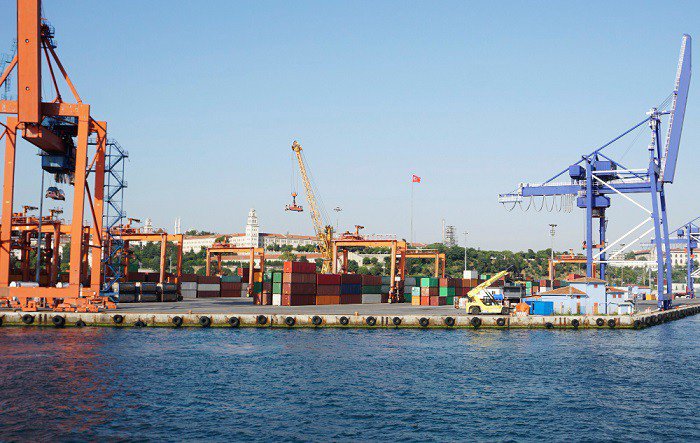
The global economy heavily depends on international trade, which involves the massive movement of goods across international borders. The use of shipping containers and port facilities is subject to several conditions and fees to ensure smooth and effective cargo movement. Demurrage, detention, and port fees are among them, and they significantly impact the overall logistics process and cost. Accurately calculating cargo volume using a CBM Calculator can help businesses understand these fees better and optimize their shipping strategies.
In-depth explanations of these charges' significance and how they work in maritime trade are provided in this comprehensive guide.
Understanding Demurrage
Demurrage is the term used to describe the fees paid by the consignee or importer when they keep the containers longer than the designated port terminal is permitted to be left unattended by the shipping line or port. The consignee typically has a set amount of time, known as free time, to unload the containers once the cargo has arrived at the port and return them to the shipping line for further transportation. This time frame can change depending on the shipping company, the cargo type, and the destination port.
Demurrage fees are assessed if the consignee does not deliver the containers back within the allotted grace period. To prevent port congestion and guarantee a smooth flow of commerce, these fees are designed to encourage the prompt release of containers. Demurrage fees can rise quickly and burden importers a heavy burden if the holdup continues.
Decoding Detention
Detention fees are frequently mistaken for demurrage but have a slightly different function. Detention refers to the period of time that containers are outside the port's boundaries but still in the consignee's possession. Demurrage refers to the time that containers are at the port.
A predetermined "free time" is given after the container is delivered to the consignee's location so that the cargo can be unloaded and the empty container can be returned to the shipping line's designated depot. Detention fees apply if the consignee stays longer than this grace period. These fees incentivize prompt container return to the shipping line's depot, guaranteeing container availability for the following shipment.
Unraveling Port Charges
Port charges are a broad category of fees that the port authorities impose for the use of their facilities and services.
Demurrage and detention fees, typically paid directly to the shipping line, are typically separate from these fees. The kind and volume of cargo handling can affect port fees, which can differ from one port to the next.
Some Common Port Charges Include:
- Berth Charges: Levied for using the berth space for vessel mooring and cargo handling.
- Handling Fees: Paid when cargo is loaded and unloaded between a ship and a port.
- Terminal Handling Charges (THC): Reimburse the terminal for the costs of handling containers, including loading and unloading onto trucks or trains.
- Documentation Fees: Costs related to handling and processing cargo release and customs clearance paperwork.
- Security Fees: These fees are assessed to fund the port's security measures.
- Pier Pass Fee: This fee is charged in some ports to control traffic during peak hours.
Factors Affecting Charges
Demurrage, detention, and port charges are calculated based on several different factors. Importers and exporters can manage their logistics costs more effectively by being aware of the following factors:
- Free Time: The amount of time provided by the port or shipping line is a key factor. A more flexible window to unload or return containers without incurring fees is made possible by longer free time.
- Cargo Type: The charges may vary depending on the type of cargo and whether it needs specialized handling.
- Container Size and Type: Prices may change based on the size and type of the container.
- Port Congestion: To encourage faster cargo movement, fees may rise during busy times of the year or in congested ports.
- Shipping Line Policy: Because demurrage and detention policies vary between shipping lines, knowing the specific terms and conditions is important.
- Infrastructure and Services: The quality of the port's infrastructure and services may impact the costs.
Tips To Avoid Or Minimize Charges
Importers and exporters can use several techniques to prevent or reduce demurrage, detention, and port charges, given the potential financial impact they may have:
- Effective Coordination and Planning: These factors can help guarantee that containers are picked up, loaded, and delivered within the allotted time window.
- Cooperation with Logistics Providers: Good communication and prompt cargo handling can result from strong relationships with logistics providers.
- Real-Time Tracking: Using tracking systems can assist in keeping an eye on container movements and guarantee a prompt return to the shipping line.
- Negotiation with Shipping Lines: Reaching agreements with shipping lines that are advantageous to both parties can result in more favorable terms and conditions.
- Using Container Freight Stations (CFS): Using CFS facilities for cargo storage occasionally offers flexibility and financial benefits.
Conclusion
Anyone engaged in international trade must understand the complexities of demurrage, detention, and port fees. The upkeep of effective port operations and encouraging prompt cargo movement depend on these fees. To avoid unforeseen costs and guarantee the efficient flow of their goods, importers, and exporters must be vigilant in understanding the rules and regulations established by shipping lines and port authorities. Businesses can optimize their logistics operations, lowering costs and increasing overall supply chain efficiency in the constantly changing world of maritime trade by using best practices and strategic planning.





 Get instant quote
and compare offers in real time
Get instant quote
and compare offers in real time